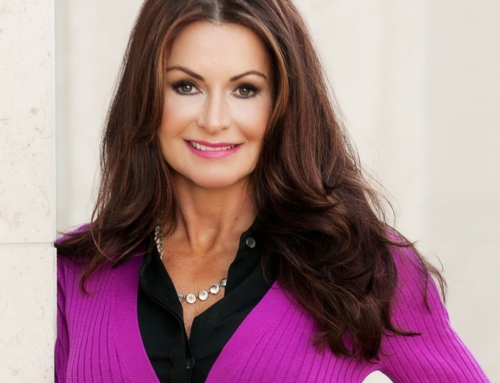As a part of my series about strong women leaders in the cannabis industry, I had the pleasure of interviewing Leslie Apgar, MD and Gina Dubbe.
Gina Dubbe’ is a serial entrepreneur and venture capitalist. Currently, she serves as the Managing Director and Co-Founder of Greenhouse Wellness, an award-winning dispensary in Maryland, and is also Co-Founder of Blissiva, a female-focused cannabis line. She is also Co-Author of the book, “High Heals; How Two Women Found Their Footing in the Cannabis Industry,” and was the Co-Founder of TheraPearl, a revolutionary hot and cold compress. Her work with TheraPearl led the company to rank on the Inc. 500 list, and she received accolades including Forbes Magazine Women Who Built Outstanding Companies.
Dr. Leslie Apgar is a board-certified OBGYN with 17 years of experience in direct patient care. She is the Co-Founder and Medical Director of Greenhouse Wellness, an award-winning medical cannabis dispensary, as well as Co-Founder of Blissiva, a female-focused cannabis line. Apgar is Co-Author of the book, “High Heals; How Two Women Found Their Footing in the Cannabis Industry,” and is the Founder of Pura Vida, an award-winning Cosmetic Spa and Laser Center, a business that continues to thrive well in 12 years of operation.
Thank you so much for doing this with us! Can you tell us the “backstory” about what brought you to the cannabis industry?
Our entry into the cannabis industry was really a random thing. I had been approached by a patient at my medical spa who wanted to bid me as their medical director for their vertically integrated cannabis proposal and was also looking for capital. Gina and I agreed to jump on a conference call with her partner after a Wednesday-evening tennis date; we’d be together anyway: and we are pros at multitasking!
The call quickly revealed itself to be an embarrassing waste of time. Neither of us could fathom what had possessed the man on the other end of the line to ask us to invest our time and money into a medical cannabis dispensary and then act as if he was doing us a huge favor.
When Gina asked typical investor questions like, “When do you expect to become profitable?”, he said something along the lines of, “Oh, you wouldn’t understand that.” It was obvious he’d never read our bios, didn’t care to know about our business successes and assumed we didn’t have the smarts to understand a basic business model.
It wasn’t a long call. As we pulled into Gina’s garage, Gina looked at me, and we didn’t have to say, “We’re not gonna do this.” It was clear. I was embarrassed to have wasted my friend’s time and drove the half mile down to my house just shaking my head about the whole thing — I hadn’t even gotten in the door when my phone rang. It was Gina and she was fired up. She indicated that she looked up the proposal requirements for the dispensary online, thought it would take 20 hours of work or so to fill out the application, and so she declared we should just do it ourselves! She convinced me, and we dove right it. However, it wasn’t 20 hours of work. It was more like 120 hours, but that’s another story.
Can you share the most interesting story that happened to you since you began leading your company? Can you tell us what lesson you learned from that?
There’s actually a passage in our book, High Heals, that describes a turning point for Leslie, as she was working with a patient at the dispensary that sums it up:
“Just give me whatever has the highest THC,” he said, tapping his fingers on the quartz countertop, his eyes darting to the large monitor that listed cannabis product.
Judging by this man’s request and his appearance — unshaven, a little too long without a haircut, and baggy clothes — I had pegged him as what we in the business call “a stoner.” Gina and I had worked hard to position Greenhouse Wellness as a medically focused dispensary that genuinely cared about providing medicine to people who needed it. But we weren’t ignorant to the possibility of people just looking to get a legal high under Uncle Sam’s nose. I’d been trained not to judge someone by their appearance, but this guy was making it difficult.
“Okay, here are a few of our options,” I said. “Can I ask what condition you’re looking to treat?” This was the second time I’d asked this question, though in a slightly different way. As a physician, I’d been trained to ask patients questions three times to give them three opportunities to tell the truth about what was really happening.
“I’m really just looking for whatever has the highest THC.” I kept a straight face and nodded, careful not to betray any sense of impatience or frustration. It was frustrating, though. Whenever someone came in asking for the product with the highest THC (the psychoactive component of cannabis), it was like someone going to a wine store and asking for a bottle of Everclear. They were clearly not looking for something they’d enjoy or that would help them, they wanted something that would mess them up.
After going on for a couple minutes about the different kinds of strains and their effects, I said, “But this all depends on what kind of ailment you need help with.”
The third time must have really been the charm, because something changed in this gentleman. He threw up his hands — but then he took in a deep breath, and his demeanor softened. Tears formed in his eyes as he told me about his experience in the military and how he was suffering profound anxiety.
Once we spoke openly about his PTSD, I could actually help him. His shoulders relaxed as if a tremendous weight had lifted off him. I directed him toward the products that would ease his suffering, and they certainly weren’t the strains with the highest THC.
When he came in, I made an assumption about this man based on his appearance, but once I got him to be honest with me, I made what I believed was serious progress toward his healing. A medical marijuana dispensary that didn’t place such an emphasis on medicine might have immediately satisfied this man’s initial request and sent him on his way. And that wouldn’t have provided him the type of help he needed.
Can you share a story about the funniest mistake you made when you were first starting? Can you tell us what lesson you learned from that?
Another passage from our book, High Heals, describes the experiences we had on April 20th, a major cannabis holiday. The first year we were absolutely terrified:
Our humble dispensary was overrun by patients, with dozens more waiting outside, and we were completely unprepared. We didn’t have enough registers or enough staff members working, and folks were growing increasingly impatient with the long wait. I made desperate eye contact with Leslie. She would later tell me, “You looked like how I felt.”
It was April 20, 2018 — or as we say in the cannabis business, “4/20.” Though Les and I were well aware of the significance of “420” in cannabis culture, we didn’t quite grasp that April 20 was such a major holiday. We expected it was mostly for the recreational users and that our patients and prospective patients, who were mostly keen on the medicinal properties of cannabis, wouldn’t be interested. In the morning huddle, I’d told the staff, “It might be a little busier today, but it should be more or less normal.” Little did I know that about thirty people had already lined up at the door. Just goes to show how much, or how little, I knew about the industry.
Our first patient that day was an eighty-four-year-old woman in mom jeans and a cat T-shirt using a walker with tennis balls. She’d heard the hoopla about 4/20 and wanted to be a part of it, so here she was, having the time of her life. The patients that followed came from every walk of life, and they had varying degrees of enthusiasm and patience.
Speaking of mistakes and triumphs, we learned from our ill-fated experience on April 20, 2018, and we made sure we were prepared in 2019. We had the entire staff working and extra registers to cash more people out. To keep folks from lining at the door, we opened an hour earlier without telling anyone. We decked out the parking lot with balloons, food, games, and free coffee, and we enlisted local vendors to feed and entertain our patients as they waited for their turn. When we finally called patients in to look at product, they were munching on cheesesteaks, just happy as can be.
We assumed that 4/20 couldn’t be any bigger than it was the previous year — especially since many more dispensaries had opened up. We were wrong. We easily saw five hundred patients. This time when Leslie and I stole glances at each other, there wasn’t any panic on our faces — just pure excitement at how well everything was going.
Well, maybe a little panic. Some things, like our ability to worry, just don’t change.
Do you have a funny story about how someone you knew reacted when they first heard you were getting into the cannabis industry?
Not really funny…..there was shock, horror, and amazement. Leslie left a successful practice as an OB-GYN to join the movement. However, the same people who didn’t understand a couple years ago now bring their family members who are battling illness and pain to the dispensary.
None of us are able to achieve success without some help along the way. Is there a particular person who you are grateful towards who helped get you to where you are? Can you share a story?
We are so grateful for the kindness and support of patients, friends and colleagues. Our employee, Diana, is one of our secret sauces. She was able to give perspective and experience to us in a very meaningful way, very early on. Our introduction to Diana is captured in our book, High Heals:
Diana was a small thing — maybe five feet two — and her husband, Jeff, had that weary, determined look of someone engaged in a long battle. Like many of the patients who came in for medical cannabis consultations, they had an air of frustration and desperation. They had been looking for an option dealing with medical marijuana for a long time. One harmful assumption about medical cannabis is that all the “patients” are really just stoners looking for a quick legal fix; in Diana and Jeff’s case, this couldn’t be further from the truth.
Diana’s husband had been diagnosed with lung cancer twice and beat it back twice, and now he was battling it a third time. This time they had elected to try nontraditional treatment for a variety of reasons, one of which was because the cancer had spread to his brain.
Though Maryland had approved medical cannabis, the product itself was not yet available for legal public consumption. Still, Diana had the courage to find a whole pound of the (still technically illegal) cannabis that was available on the illicit market. A pound may not sound like a lot, but we’re talking about cannabis: that’s basically enough to fill a pillowcase, and it certainly wasn’t cheap. But she needed that amount to prepare the cannabis medication known as Rick Simpson’s Oil, named after a Canadian medical cannabis activist. Through great personal risk and effort, she underwent the complicated process of preparing the oil in her home. Fortunately, the prying eyes of her neighbors weren’t too prying, or perhaps they didn’t mind, and Diana was able to treat her husband. It was so very impressive. We were happy to help fill in the gaps in her research and get her husband the treatment he needed, but that wasn’t all: we could tell she had the kind of drive and motivation we wanted in our staff. On the intake form Diana had filled out for her husband, where she’d outlined her experience thus far with cannabis, Gina wrote, “Need to hire her.”
Diana was one of the first of a series of highly qualified and talented members of our staff, and staffing Greenhouse Wellness with such people was a vital part of our vision.
Are you working on any new or exciting projects now? How do you think that will help people?
All the information we learned about how cannabis can help women led us to conclude that it was high time there were cannabis products for women. It was those words anandamide and bliss that really struck us as we were brainstorming this line of products we wanted to create. Bliss is what we wanted for women, but we didn’t want them to just be happier — we wanted them sleeping better, feeling less pain, and so much more. We wanted to create a product for all fierce ladies battling board meetings, managing families, and trying to live their best lives.
And that’s when we came up with the concept for Blissiva. Bliss + sativa (which is, of course, a strain of cannabis) seemed to capture the idea we were going for. If you’ve ever looked at the names of cannabis strains out there, you know they can be distasteful and difficult to parse in terms of what you’re getting. For example, “Pootie Tang” and “AK-47” are the actual names of strains you can buy — names, I might add, that are clearly marketed toward men. Though medical cannabis and CBD products in particular are becoming more mainstream, and some of the products themselves and their names are getting better, we didn’t like the products we were seeing. They weren’t attractive. They weren’t well made. After doing all this research in cannabis and understanding how well wired a women’s body is for cannabis, especially in the reproductive system and the uterus, we realized we could really do this.
We agreed that marketing Blissiva to women was a good strategy. We imagined our sleek vape pen in its purple packaging would stand out among the more masculine-looking products, capturing the interest of women tired of browsing the same tired choices. Beyond that, Blissiva was a statement: here is a product designed to satisfy women. It can satisfy men, too, but they weren’t our target. Sure, we were marketing toward only 50 percent of the populace, but we decided we would capture a higher percentage of that 50 than if we had marketed Blissiva more broadly.
Though our marketing strategy was clear, we by no means forbade men from trying Blissiva. In fact, 20 percent of our sales are from men who also want a discreet experience with a fabulous taste and inoffensive smell. Yes, we formulated it to address health concerns unique to women, but you don’t need a vagina to buy it, and we’re not so incredibly different that men can’t enjoy its benefits too. One heavy THC user said Blissiva did wonders for his anxiety. Afterall, plenty of women buy products that are targeted toward men.
Blissiva sold out of within six weeks. When we finally got more, people were walking out with bags full of vape pens, purchasing ten or more at a time. We got a call from a plastic surgeon who wanted to start recommending Blissiva instead of painkillers. We got more calls from people from across the country, asking when it would be available in their neck of the woods.
We were surprised and thrilled by the warm reception to Blissiva. Releasing it to the public and watching the reaction felt like a watershed moment for us. We were using it to stake out claim in the cannabis industry, as if to say, this isn’t just one more industry for men to rule by default. Here’s a product created by women and exclusively marketed toward women without a man’s permission.
The Blissiva manifesto is:
–Don’t Settle. Don’t look back and say ‘I wish.’
— Ask questions. Think through your own beliefs and goals and question everything. Don’t accept the normal viewpoints without thinking it through.
— Have a fresh perspective. The glass is neither half full or half empty, but clearly, there is room for more wine.
— Push Boundaries. Be disruptive.
— Don’t take no for an answer. Sorry, not sorry.
— Be Present. To work, life, and children.
— Be Fearless. Showing up doesn’t get you a ribbon. Losing teaches lessons.
Ok. Thank you for all that. Let’s now jump to the main core of our interview. Despite great progress that has been made we still have a lot more work to do to achieve gender parity in this industry. According to this report in Entrepreneur, less than 25 percent of cannabis businesses are run by women. In your opinion or experience, what 3 things can be done by a)individuals b)companies and/or c) society to support greater gender parity moving forward?
The things that can be done to achieve gender parity are:
Understand that things are not even. While #MeToo and #Time Out are a start, it is extremely difficult to be equal in an industry that is 75% male. This is even worse for minorities. Support initiatives for racial and gender equality. The majority of large cannabis companies are controlled by white males (just the facts).
Verticalized companies (that own a grow, processor and dispensary) are going to put the smaller companies out of business due to their monopolization of the supply chain and product. Buy from a smaller dispensary! Your dollars go to support dance lessons and T Ball. The only way to make sales equal is to shop at female and minority owned dispensaries.
Cheer loudly for women and minorities. A google review, a positive note on Facebook, a letter to the press supporting the good works is always appreciated and really makes a difference.
You are a “Cannabis Insider”. If you had to advise someone about 5 non intuitive things one should know to succeed in the cannabis industry, what would you say? Can you please give a story or an example for each.
We are nothing if not stubborn and don’t like to take no for an answer. From the outset, people in the cannabis industry would tell us, ‘you can’t do that’. But there is always a way, and we have remained true to our vision, which has always been our dispensary’s motto: healing evolved, life expanded.
We have learned a tremendous amount on our journey. Some lessons were expected, some that were not.
A few include:
- You will lose friends. Some folks can’t accept cannabis as an alternative healing method, and can’t even agree to disagree because of past beliefs. It has happened to both of us.
- It is harder than any other business. Many dispensary owners saw an opportunity due to the emerging market. But they aren’t necessarily as business savvy as they are cannabis savvy. This makes playing in the sandbox fairly challenging. We are seeing the death of dispensaries due to mismanagement.
- Cannabis is really impactful medicine, impactful in ways that we didn’t anticipate. We have helped our patients as they live and during the sad times as they died. In High Heals, you will read about actual patients whose lives are significantly improved after adding medical cannabis to their regimens.
- Not being able to advertise makes growing a business extremely difficult. Facebook won’t allow you to boost or share much if ‘Cannabis’ or any other synonyms are a key word. In fact, the moderators erase your Facebook and Instagram pages if there are any complaints or it comes to their attention. And you lose every thing…..your followers and history.
- Get ready to play by someone else’s rules…..not all of which make sense. The Commission in Maryland changes the rules frequently and quickly.
Can you share 3 things that most excite you about the cannabis industry?
- When there is disruption, there is opportunity. We see the dot com boom as the example of what the green rush can be.
- It is wonderful to build from the ground up in a dynamic enviroment. There are no right or wrongs…..and plenty of opportunity.
- Cannabis is impactful medicine. We see it every day as we watch our patients heal.
Can you share 3 things that most concern you about the industry? If you had the ability to implement 3 ways to reform or improve the industry, what would you suggest?
There are a number of suggestions that we would make:
- Big business is going to dominate the field and the pricing. We need to be cautious about verticalization. When someone owns the grow, processor and dispensary, there is a monopoloy.
- It is a boy’s club. There are 51% women in the world and less than 25% of the cannabis businesses are women and minority. And the stats will continue to diminish with verticalization.
- Banking regulations need to be changed so that we can bank easily. This will further reduce costs and curb illegal sales.
Here is a typical scenario when we are trying to purchase product from a cultivator vis a passage in our book, High Heals:
“I understand that a dispensary down the street from us purchased your product for twenty dollars a gram. Can I ask why you’re offering us forty dollars a gram?” I uncrossed my free arm and reflexively put my hand on my hip. The man on the other line couldn’t see this power stance, obviously, but I stuck with it anyway. This was one of many phone calls I made to growers, doing the hard work of chasing down the best prices for our product.
“We can’t charge you that price,” said the voice on the other line.
I was taken aback by the clipped response but had no trouble reciprocating his curtness. “Why not?”
“Because that price was for a certain volume.”
In any business, it’s of course good practice to give discounts for bulk purchases — but 50 percent? That seemed excessive to me. They couldn’t have purchased that much more volume than us. Still, I couldn’t say I was completely surprised.
Growers set the flower pricing, similarly processors determine the pricing for concentrates. Some post prices on trade websites and you can see their products advertised, but then some don’t. Some companies — both growers and processors — sell to who they want to sell to. Now, of course, this happens in every type of business — relationships impact your pricing as does the quantity and volume that you buy. In many industries, there are little groups here and there that only like to do business with each other. There are a number of reasons someone may want to work only with friends or well-known colleagues, and some of these reasons are absolutely legitimate. But some reasons are also just an excuse for cronyism or misogyny, which can turn into the worst type of good old boys’ clubs. This often results in sweetheart deals for some and sour deals for anyone who isn’t part of the inner circle.
“If we purchased that volume, would you lower the price to twenty dollars a gram?” I’d been through this before. He would find some excuse not to sell to us at that price — maybe claim to be too low on product to be able to sell such a volume at this time. Still, I had to ask.
As women in many other industries can attest, it’s not an easy thing to be in a field where the mere fact that we are women means we’ve failed a litmus test for doing business with some people. Technology, gaming, comic books and graphic novels, construction, and manufacturing, just to name a few, are industries where women are held to vastly different standards, constantly having to prove themselves not just to get a job but to be respected on a day-to-day basis. Unfortunately, that’s how the medical marijuana industry has started out here in Maryland for us.
“No, I’m afraid we don’t have the volume at this time.”
Figures.
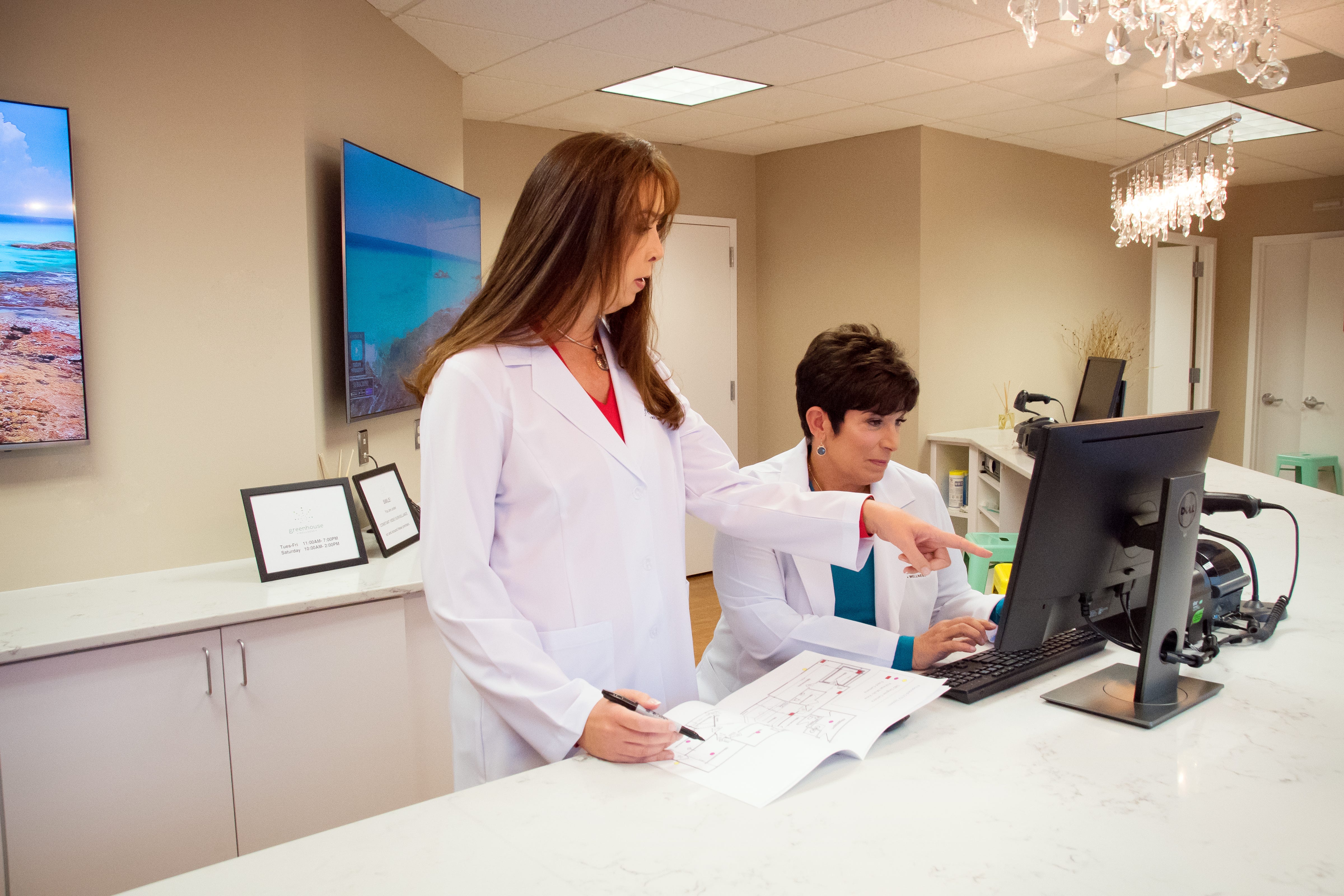
What are your thoughts about federal legalization of cannabis? If you could speak to your Senator, what would be your most persuasive argument regarding why they should or should not pursue federal legalization?
We believe that cannabis should be legalized, but should maintain some of the regulatory aspects that will ensure that it is safe and tested. The recent vape related health issues were due to unregulated THC products. By legalizing, regulating, and monitoring, we can maintain high quality and consistent dosage of cannabis.
Today, cigarettes are legal, but they are heavily regulated, highly taxed, and they are somewhat socially marginalized. Would you like cannabis to have a similar status to cigarettes or different? Can you explain?
We believe that cannabis should be treated like an over-the-counter drug. There are guidelines in place that allow for people to purchase Sudafed, as an example. It is being monitored by an agency for over-use and it is regulated in production so that you know what you get. The vape-related health issues over the past month were due to unregulated THC being added to unregulated products and untested vape hardware. This is a recipe for disaster and sadly has resulted in deaths in the US. Proper regulations and testing are key.
Can you please give us your favorite “Life Lesson Quote”? Can you share how that was relevant to you in your life?
‘Life should not be a journey to the grave with the intention of arriving safely in a pretty and well preserved body, but rather to skid in broadside in a cloud of smoke, thoroughly used up, totally worn out, and loudly proclaiming, ‘Wow! What a Ride!’ Hunter Thompson
We never thought we would own a dispensary. We never considered the idiosyncrasies involved in the cannabis space. But there was Gina, last summer, driving down the highway going to pick up a transfer of products from another dispensary. Summer day, windows down, country music playing, a cute little sequined purse with a pineapple on it. Just like every other suburban mother, right? Except that purse had 100 grams of shatter in it (and the appropriate transfer manifest). You just never know.
Our very first patient to enter the dispensary was incredibly excited for us to open and had been emailing us for weeks before we officially had product available to sell. She had been injured while in service to our country and had hardware in her back after surgery to correct her spinal fractures. She was in constant pain, had a fentanyl pump, and was on a significant amount of oral morphine tablets. The opioids were ruining her life and she was desperate to have help weaning off her pharmaceuticals. To get her off of her meds, we used a THC elixir, which she used to replace a dose of her oral pain meds. When she was off her morphine, she started to wean off the fentanyl pump. Within 3 months, she was off the opioids entirely. She is now off the cannabis as well. She made such an impact on the whole staff, and especially on Leslie who, as a physician, had never before seen the impact of cannabis on opioid use first hand. We watched her personality change week to week, watched her change her gait as her pain lessened, and celebrated in unison when she announced she was off her pain meds completely. She changed everything for us. We watched in awe. Les isn’t joking when she says, ‘This is the most impactful medicine I have ever practiced.’
We keep a box of tissues handy at every station at our dispensary. We celebrate with those who succeed, commiserate with those who struggle, and grieve alongside the families of those we lose. We keep celebrating the good times and muddling through the bad: but we keep going. We had some amazing help and a bit of luck, but we did it. And you can too. Be unapologetic about saying no when you need to say no until your tongue bleeds if that is what’s right for you. Don’t feel the need to explain why. Be yourself. Be true to who you are. Have a clear vision. That is the blueprint for success. Never take your eyes off the prize.
A lot of us live our lives inside the guardrails, but real change, real innovation, and real success all happen when we take risks. The biggest and best opportunities happen when there is disruption: the bigger the risk, the scarier it is, the bigger the reward. Flex your muscles.
You are a person of great influence. If you could inspire a movement that would bring the most amount of good to the greatest amount of people, what would that be? You never know what your idea can trigger. 🙂
We consistently push the values of kindness, compassion and lifting others up wherever we go. We want our successes to cause a ripple effect to others. From our book, High Heals:
Now when we wake up in the morning, our first thought is often, not ‘how did I get here?’, but ‘how can we make the biggest impact today?’ The cannabis sphere is the career and the industry that we choose to remain in. We will stay, without any reservation, and continue to try to elevate every single element involved from the medicine to the business practices to the patient interactions and everything in between. We’ve accepted the downside, like the lost friends and the continued federal illegality. We still cry at the funerals of the patients that don’t make it. But we cheer, too, because we think that cannabis is good medicine, and this is no longer a surprise to us. Leslie looks forward to an increase in robust studies on cannabis, providing information, the good and the bad, so physicians and providers can more confidently make safe treatment recommendations. Gina looks forward to the stigma going away so more people feel empowered to try cannabis without feeling ashamed or embarrassed. It’s been a strange ride, to say the least, but as we embrace the next chapter in our adventure together.
We echo Coco Chanel, who said, “Keep your heels, head, and standards high.” Pun totally intended!
Thank you so much for the time you spent with this. We wish you only continued success!

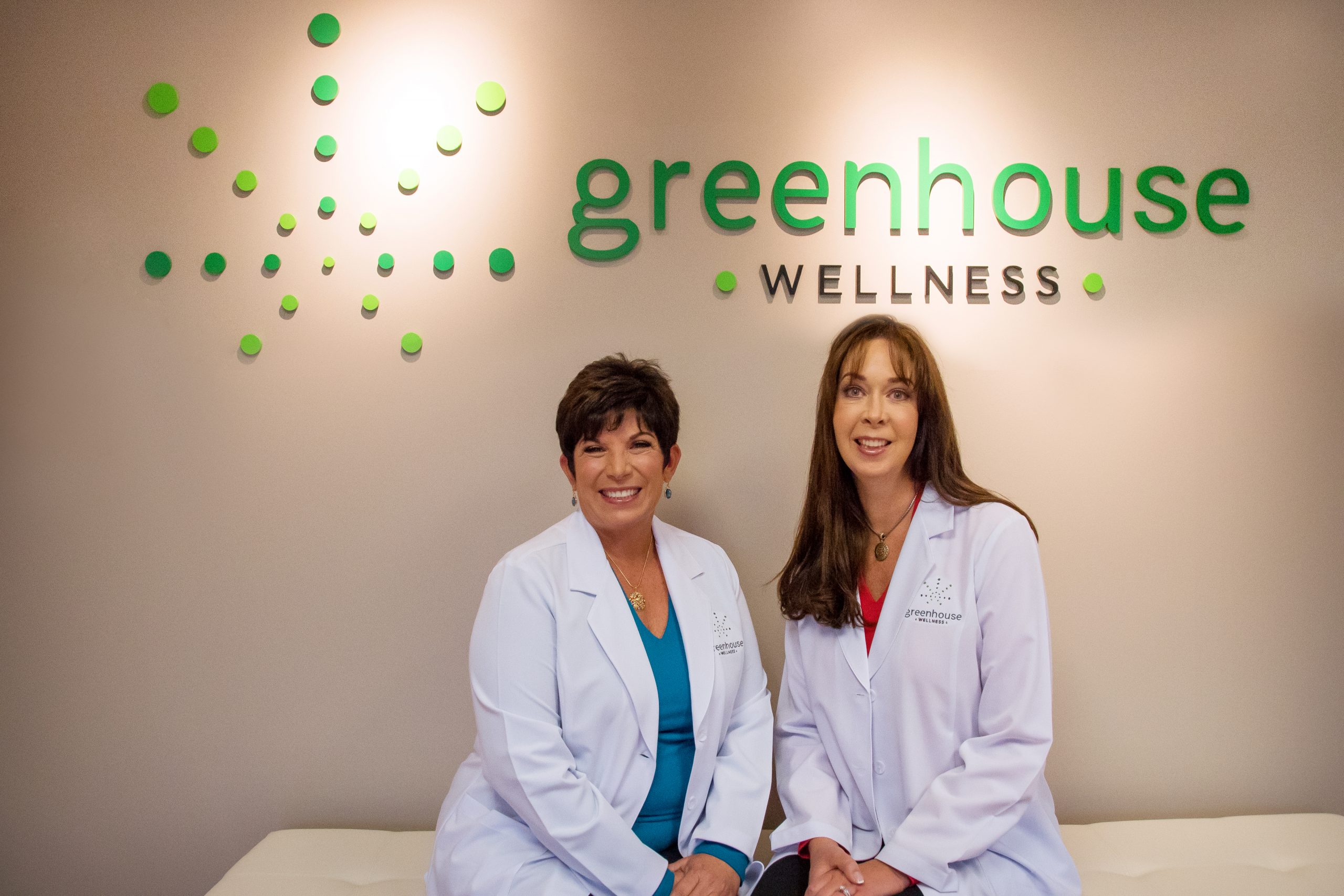
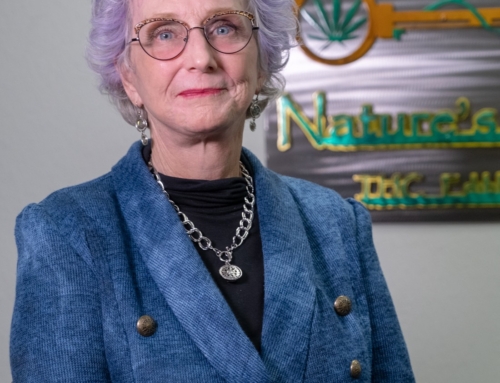
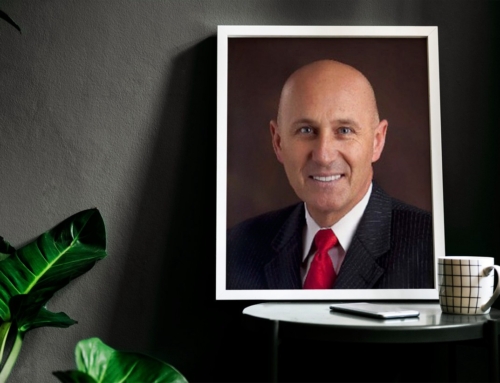
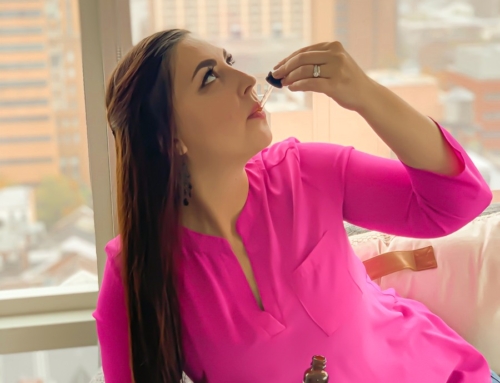

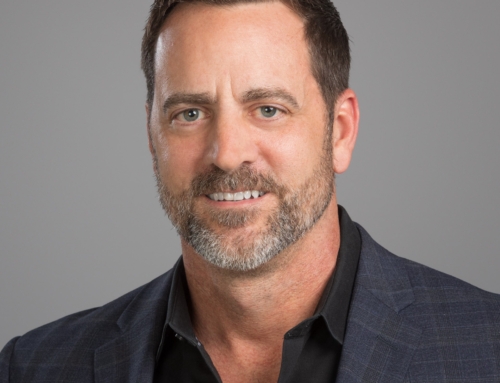
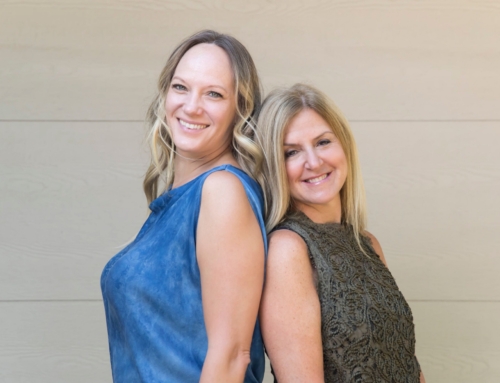
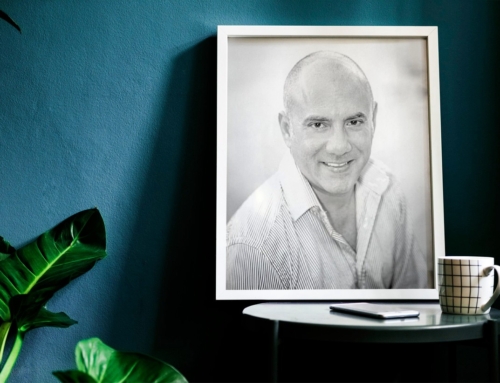
![“The potential to help people [in this industry] is enormous, but there’s still so much to learn.” – Ramon Alarcon, Witi](https://lakesideremedy.com/wp-content/uploads/2020/12/1thj5ekUyxQ69iLz1JJyODg-scaled-e1607882756286-500x383.jpeg)
